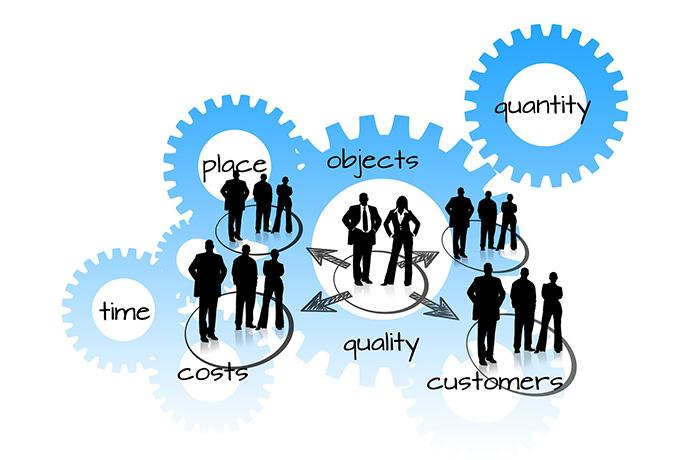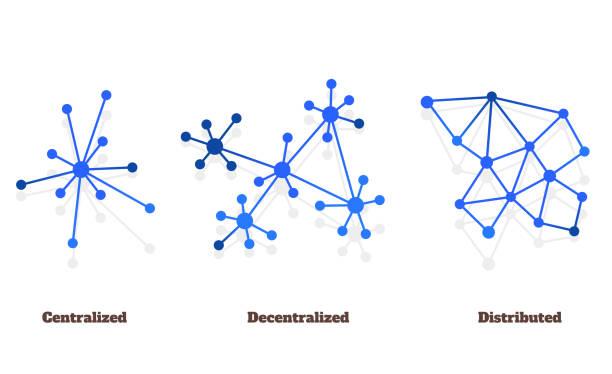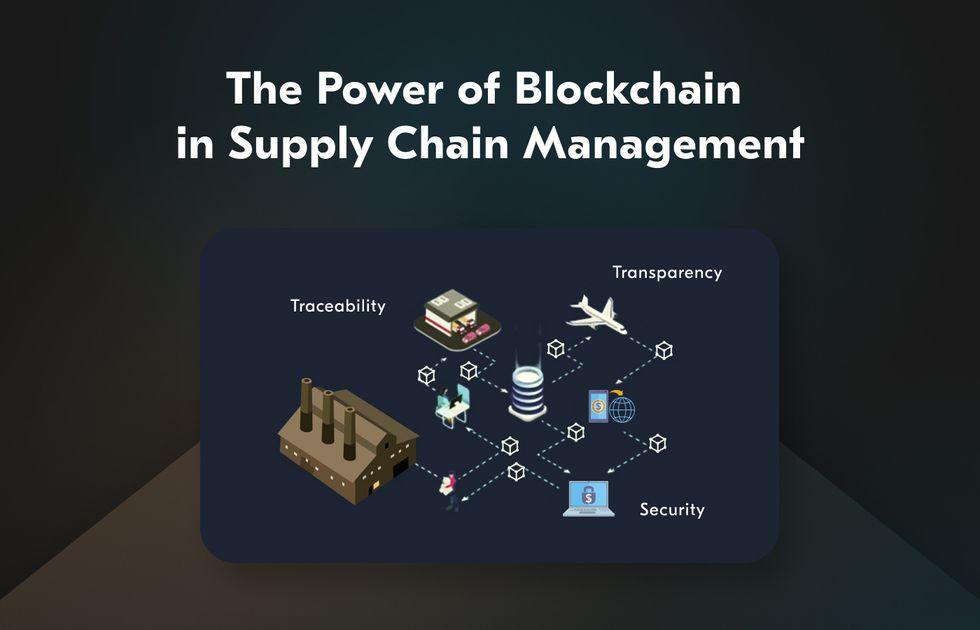In an age where instantaneous connectivity is the norm and consumer expectations are at an all-time high, traditional supply chains are grappling with an array of challenges—from transparency issues to inefficiencies and compliance burdens. Yet, just as industries have weathered transformations in the past, a formidable ally is emerging on the horizon: blockchain technology. Often associated with cryptocurrencies, blockchain’s potential extends far beyond the financial realm, heralding a new era of innovation in supply chain management. This article delves into the revolutionary impacts of blockchain, exploring how its decentralized, immutable, and transparent nature is reshaping the fabric of logistics and distribution. By connecting disparate systems and improving traceability, blockchain not only promises to enhance operational efficiency but also enables a new level of trust among stakeholders. Join us as we unpack the intricacies of this technological breakthrough and its implications for the future of supply chains.
Unlocking Transparency in Supply Chains through Blockchain Technology
As businesses strive to increase efficiency and reduce fraud, blockchain technology emerges as a promising solution in the quest for transparency. By creating immutable records of transactions, companies can track goods throughout the supply chain, ensuring authenticity and accountability. This technology allows stakeholders to gain real-time access to supply chain data, fostering trust and collaboration between manufacturers, suppliers, and consumers. Some key benefits include:
- Traceability: Every transaction is time-stamped and secure, enabling easy identification of goods at any point.
- Reduced Fraud: With transparent records, counterfeit products can be significantly diminished.
- Enhanced Trust: Open access to data builds consumer confidence in product sourcing and quality.
Implementing blockchain within supply chains can potentially transform how businesses operate. Imagine a scenario where a consumer can digitally trace the journey of their coffee from farm to cup, verifying ethical sourcing and sustainable practices. Each participant in the supply chain records real-time data, creating a comprehensive view of the product lifecycle and mitigating disputes. The table below illustrates some of the key players in a blockchain-enabled supply chain:
| Role | Function |
|---|---|
| Producer | Creates and logs initial product data. |
| Distributor | Tracks and verifies shipment information. |
| Retailer | Provides product verification to consumers. |

Streamlining Operations: Enhanced Efficiency and Cost Reduction
Incorporating blockchain technology within supply chain management has emerged as a game-changer, offering companies the ability to streamline operations vastly. This revolutionary approach eliminates redundancies and enhances transparency, resulting in improved efficiency. By creating an immutable ledger that tracks every transaction, organizations can enjoy the following benefits:
- Real-time tracking: Instant visibility into goods movement minimizes delays.
- Automated processes: Smart contracts reduce the need for intermediaries, speeding up transactions.
- Data integrity: Reduced risk of fraud and errors thanks to secure, verifiable records.
The financial implications of such a transformation are equally profound. Cost reduction becomes a natural outcome as companies optimize their resource allocation and minimize waste. With enhanced planning and predictive analytics, organizations can anticipate demand and adjust their operations accordingly. A brief comparison of traditional and blockchain-enhanced supply chains illustrates this potential:
| Aspect | Traditional Supply Chain | Blockchain-Enhanced Supply Chain |
|---|---|---|
| Transparency | Limited visibility | Full traceability |
| Intermediaries | Multiple layers | Direct transactions |
| Data Security | Vulnerable to tampering | Highly secure |
| Efficiency | Often slow | Rapid execution |
This streamlined approach not only fosters rapid decision-making but also cultivates a collaborative atmosphere among stakeholders, leading to a more responsive and resilient supply chain. As businesses adopt blockchain solutions, they will find themselves well-equipped to navigate the complexities of modern market demands.

Minimizing Risk: Building Trust and Security with Decentralized Networks
In the rapidly evolving landscape of supply chain management, trust and security are pivotal components that can no longer be treated as secondary concerns. Decentralized networks leverage blockchain technology to enhance transparency, allowing all parties involved to verify transactions in real-time. This openness not only fortifies the integrity of the data but also builds confidence among stakeholders. By eliminating reliance on a single entity, decentralized systems offer a robust framework that mitigates risks associated with fraud and data manipulation. Companies can harness the power of decentralized ledgers to ensure that every step of the supply chain process is auditable and verifiable, leading to a significant reduction in operational risks.
Moreover, the implementation of smart contracts in these decentralized frameworks further amplifies security and trust. These self-executing contracts automatically enforce and execute agreements between parties once pre-defined conditions are met, ensuring accuracy, efficiency, and accountability. In addition to this, the immutability of blockchain records means that once information is logged, it cannot be altered or deleted, which safeguards against unauthorized changes. The collective effect of these features results in a more cohesive network where trust is ingrained into its very fabric. As businesses navigate the complexities of global supply chains, adopting such innovative solutions will be critical in positioning themselves for long-term success.

Future-Proofing Supply Chains: Strategies for Implementation and Adoption
As businesses strive to enhance resilience and adaptability in their operations, integrating blockchain technology stands out as a revolutionary approach. This decentralized ledger system offers the potential to improve transparency, efficiency, and security across supply chains. Key strategies for implementation include:
- Cross-Functional Collaboration: Engaging stakeholders from various departments can foster a shared understanding of blockchain’s benefits and challenges.
- Pilot Programs: Launching small-scale trials can help organizations evaluate blockchain’s functionality and effect on supply chain processes before a full-scale adoption.
- Training and Development: Investing in regular training programs ensures that team members are knowledgeable and comfortable with this emerging technology.
Moreover, overcoming resistance to change is crucial for seamless adoption. Many supply chain professionals may be hesitant to shift from traditional methods. To facilitate acceptance, companies can create an incentive structure that rewards early adopters and champions of blockchain initiatives. Additionally, restating the benefits through data-driven results can illustrate the technology’s impact on efficiency and cost savings. Implementing a structured feedback mechanism is also essential, allowing stakeholders to voice their concerns and suggestions during the transition. Here’s a brief overview of these strategies:
| Strategy | Description |
|---|---|
| Cross-Functional Collaboration | Engage all relevant departments to foster understanding. |
| Pilot Programs | Test blockchain solutions on a small scale before wider implementation. |
| Training and Development | Equip teams with necessary skills and knowledge. |
| Incentive Structure | Reward champions of blockchain initiatives. |
| Feedback Mechanism | Gather insights from stakeholders to improve processes. |
In Summary
the integration of blockchain technology into supply chains represents a transformative leap toward efficiency and transparency in an increasingly complex global marketplace. As we stand on the brink of this digital revolution, the potential for smart contracts, real-time tracking, and enhanced trust among stakeholders is enormous. Yet, while the promise is compelling, navigating the challenges of implementation remains vital. As businesses worldwide begin to adopt these innovations, we can only anticipate the profound changes that will reshape logistics, foster collaboration, and ultimately redefine the very essence of commerce itself. The journey has just begun, and as the blocks fall into place, the future of supply chains is poised for remarkable breakthroughs. Stay tuned, as this topic continues to evolve and inspire new paradigms in our interconnected world.



